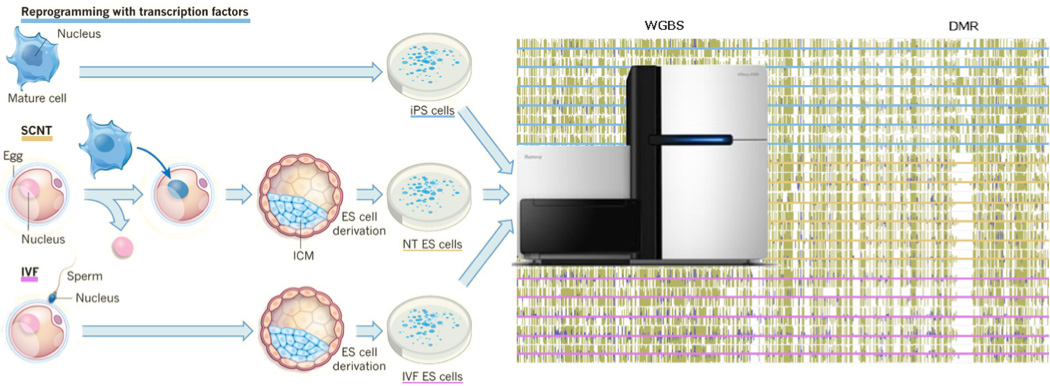Biotechnological advancements allow researchers to explore new techniques of creating pluripotent cells. These methods continue to demonstrate that the pluripotent phenotype covers a broad range of cell quality and there are many metrics to score the cells. Undergoing a reprograming event to the pluripotent state is taxing to the genome; many methods attempt a reset of their epigenetic patterns. Imperfections with reprogramming techniques leave measurable and consistent marks along the epigenome, which our lab evaluates by measuring the cell’s chromosomal structure, methylome, and expression. Chromosomal structural variation provides a broad view of the epigenetic cell state to evaluate major changes. Methlyome markers can identify pluripotent techniques and evaluate specific genomic regions that deviate from pluripotent patterns. And transcriptional analysis allows us to monitor where in the pluripotent space each method resides and correlate that spot with other markers. With each of these analyses we improve our ability to evaluate the methods of human pluripotent generation.

Prof. Ecker discusses the project here: